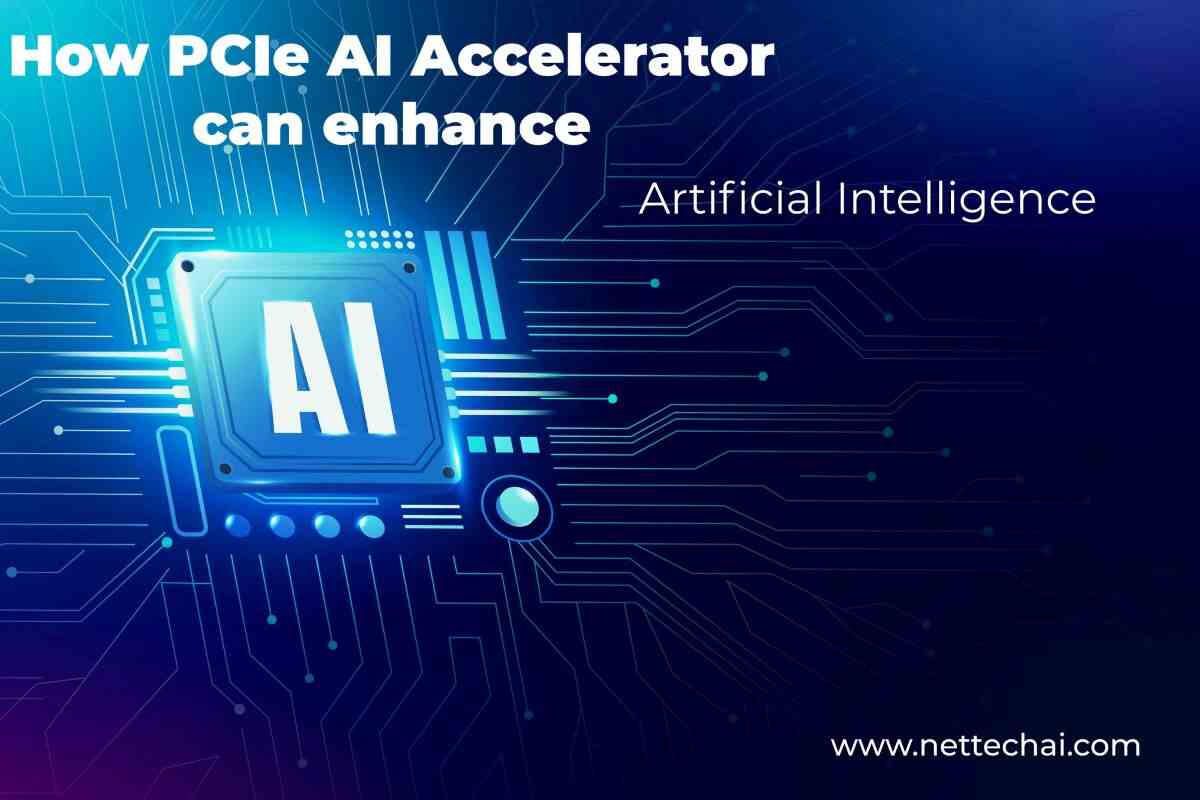Role of PCIe AI Accelerator in Artificial Intelligence

In the ever-evolving landscape of artificial intelligence (AI) and machine learning (ML), performance is paramount. The demand for faster AI processing has led to the development of specialized hardware accelerators, and one such groundbreaking technology is the PCIe AI accelerator. This article serves as a comprehensive guide to understanding PCIe AI accelerators, delving into their benefits, applications, and the transformative potential they hold in reshaping industries.
Understanding PCIe AI Accelerators
PCIe (Peripheral Component Interconnect Express) is a high-speed interface commonly used for connecting various hardware components in computers. PCIe AI accelerators are specialized hardware devices integrated into the PCIe slots of a computer’s motherboard. Their primary purpose is to offload and accelerate AI workloads, significantly improving the performance of AI applications.
Benefits of PCIe AI Accelerators
Enhanced Performance: The foremost advantage of PCIe AI accelerators is their ability to significantly enhance AI workload performance. By offloading AI computations from the CPU or GPU to dedicated hardware, these accelerators can process AI tasks much faster, enabling real-time inference and expedited machine learning model training.
Reduced Latency:
PCIe AI accelerators effectively reduce the latency associated with AI workloads. Their direct connection to the CPU via the PCIe Accelerator interface allows for quick data transfers, minimizing delays in AI processing. This is particularly crucial for applications requiring rapid decision-making, such as autonomous vehicles and robotics.
Cost-Efficiency:
Dedicated AI accelerators offer substantial cost savings in terms of power consumption and hardware infrastructure. By efficiently handling AI tasks, these accelerators can reduce the computational demands on CPUs and GPUs, leading to lower operational costs.
Scalability:
PCIe AI accelerators are highly scalable. Users can add multiple accelerators to a single system, allowing them to scale their AI processing power according to their requirements. This scalability makes them suitable for a wide range of applications, from small-scale projects to large-scale data centers.
Applications of PCIe AI Accelerators
The versatility and power of PCIe AI accelerators make them suitable for various applications across different industries:
Healthcare:
In the medical field, PCIe AI accelerators can accelerate image recognition and analysis, facilitating faster diagnosis and treatment planning. They are also instrumental in drug discovery, helping researchers analyze vast datasets to identify potential drug candidates.
Finance:
In the financial sector, PCIe AI accelerators are used for high-frequency trading, risk assessment, and fraud detection. Their ability to process and analyze data in real-time is essential for making informed financial decisions.
Autonomous Vehicles:
PCIe AI accelerators play a pivotal role in autonomous vehicles by processing sensor data and making split-second decisions. These accelerators ensure the safety and efficiency of self-driving cars.
Retail:
In the retail industry, PCIe AI accelerators are utilized for demand forecasting, inventory management, and customer behavior analysis. These tools enable retailers to optimize their operations and enhance the customer shopping experience.
Data Centers:
Data centers employ PCIe AI accelerators to accelerate data processing and improve the efficiency of AI-driven services such as natural language processing and recommendation systems.
Manufacturing:
In manufacturing, PCIe AI accelerators are integrated into robotic systems to enhance automation and quality control. They can analyze production data in real-time, identifying defects and optimizing manufacturing processes.
Energy:
In the energy sector, PCIe AI accelerators are used for predictive maintenance of equipment and energy consumption optimization. They help reduce downtime and improve the overall efficiency of energy production and distribution.
Challenges and Considerations
While PCIe AI accelerators offer numerous advantages, there are also challenges and considerations to keep in mind:
Integration Complexity:
Integrating PCIe AI accelerators into existing systems may require hardware and software modifications. Compatibility issues must be addressed to ensure seamless operation.
Power Consumption:
While PCIe AI accelerators can be more power-efficient than CPUs or GPUs for AI workloads, they still consume energy. Proper power management and cooling solutions are essential to prevent overheating and ensure reliable performance.
Software Optimization:
To fully harness the power of PCIe AI accelerators, developers need to optimize their software to take advantage of the hardware’s capabilities. This may require specialized libraries and tools.
Cost:
The initial cost of PCIe AI accelerators can be a barrier for some users. However, the potential long-term cost savings in terms of operational efficiency and performance improvement can justify the investment.
Future Trends in PCIe AI Accelerators
As technology continues to advance, several trends are shaping the future of PCIe AI accelerators:
Greater Integration:
Expect to see greater integration of AI accelerators directly into CPUs and GPUs, reducing the need for separate PCIe accelerator cards.
AI at the Edge:
PCIe AI accelerators will become more prevalent in edge computing devices, enabling real-time AI processing in devices such as smartphones, drones, and IoT devices.
Customization:
AI accelerators will become increasingly customizable, allowing users to tailor their hardware to specific AI workloads and applications.
Quantum Computing Integration:
PCIe AI accelerators may find applications in quantum computing systems, helping to accelerate certain quantum algorithms and tasks.
Conclusion
PCIe AI accelerators represent a significant leap forward in the world of artificial intelligence and machine learning. Their ability to enhance performance, reduce latency, and offer cost-efficiency makes them invaluable across a wide range of industries and applications. As technology continues to evolve, we can expect PCIe AI accelerators to play an even more prominent role in shaping the future of computing, enabling faster and more efficient AI-driven solutions. Businesses and developers should embrace this transformative technology to stay at the forefront of innovation and remain competitive in an increasingly AI-driven world. With the right integration and optimization, PCIe AI accelerators have the potential to revolutionize dthe way we compute and make AI more accessible and efficient than ever before.



